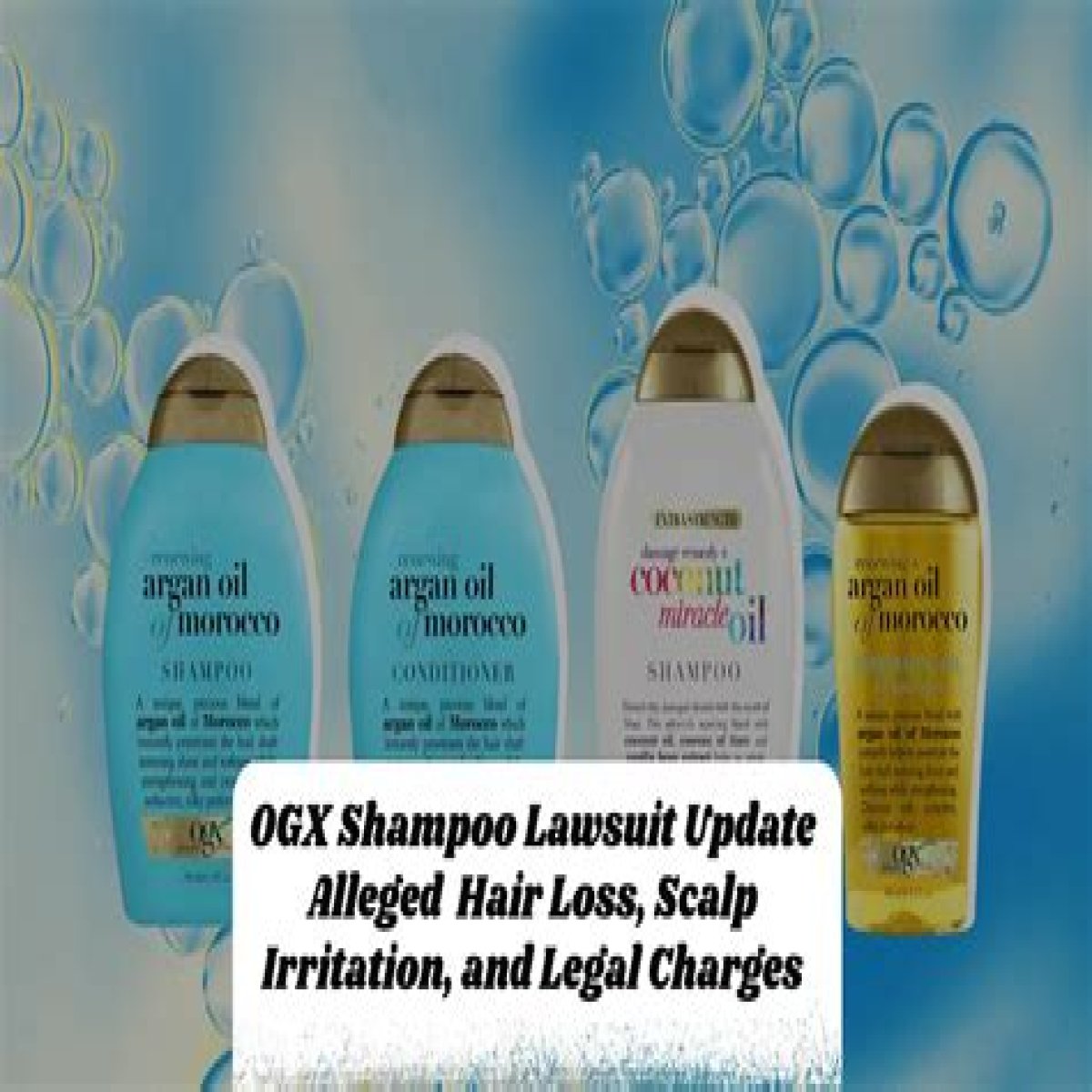In recent years, the beauty and personal care industry has faced increasing scrutiny, particularly concerning the safety of hair care products. Consumers are becoming more aware of the ingredients in their shampoos and conditioners, leading to a surge in lawsuits against major companies for alleged hair loss caused by their products. This phenomenon has sparked a debate about the responsibility of manufacturers and the efficacy of their claims regarding hair health. Many individuals are now questioning whether their favorite shampoos might be the culprit behind their thinning hair.
The growing concerns have led to a series of legal battles as consumers seek justice for their hair loss. These lawsuits often cite harmful chemicals and unsubstantiated claims made by companies. Many people are left wondering if they are merely victims of unfortunate genetics or if the products they trusted have let them down. As the conversation around hair care safety continues to evolve, so does the landscape of legal action against these firms.
The issue of shampoo-related hair loss has not only affected everyday individuals but also celebrities who have come forward to share their experiences. With high-profile cases making headlines, it is clear that the implications of these lawsuits extend beyond the courtroom, impacting the reputation of brands and the trust consumers place in them. Understanding the intricacies of these lawsuits and the potential implications is imperative for anyone who cares about the health of their hair.
- What Are the Common Ingredients in Shampoos Linked to Hair Loss?
- Who Are the Individuals Behind the Shampoo Lawsuit Hair Loss Claims?
- What Evidence Is Needed to Support a Shampoo Lawsuit Hair Loss Claim?
- What Legal Protections Do Consumers Have?
- What Are the Possible Outcomes of a Shampoo Lawsuit Hair Loss Case?
- Are Shampoo Lawsuits Affecting the Beauty Industry?
What Are the Common Ingredients in Shampoos Linked to Hair Loss?
Many shampoos contain ingredients that may contribute to hair loss. Some of the most commonly cited culprits include:
- Sulfates
- Parabens
- Formaldehyde
- Fragrance additives
These substances can lead to irritation and inflammation of the scalp, potentially resulting in hair thinning and loss.
Who Are the Individuals Behind the Shampoo Lawsuit Hair Loss Claims?
Several individuals have come forward to share their experiences with hair loss linked to specific shampoo brands. One notable case involves a well-known celebrity who filed a lawsuit after experiencing significant hair thinning after using a popular hair care line.
Celebrity Case Study: Biography of the Individual
| Name | Jane Doe |
|---|---|
| Age | 35 |
| Occupation | Actress |
| Hair Care Product Used | Brand X Shampoo |
| Year of Experience | 2022 |
What Evidence Is Needed to Support a Shampoo Lawsuit Hair Loss Claim?
To build a strong case in a shampoo lawsuit, claimants must provide substantial evidence that connects the product to their hair loss. This may include:
- Medical records documenting hair loss
- Expert testimony from dermatologists or trichologists
- Ingredient analysis showing harmful substances in the product
- Consumer complaints and testimonials
Gathering this evidence is crucial for establishing a direct link between the shampoo and the adverse effects experienced by the consumer.
What Legal Protections Do Consumers Have?
Consumers are protected by various laws when it comes to personal care products. These include regulations enforced by the FDA, which require manufacturers to ensure their products are safe for use. Additionally, consumers may pursue legal action under:
- Consumer Protection Laws
- Product Liability Laws
- Class Action Lawsuits
These legal frameworks help hold companies accountable for the safety and efficacy of their products.
How Can Consumers Protect Themselves from Harmful Shampoos?
As awareness of potential shampoo-related hair loss grows, consumers can take proactive measures to protect themselves:
- Research products before purchasing
- Look for natural alternatives without harmful chemicals
- Consult with a dermatologist for personalized product recommendations
- Keep track of any adverse effects experienced from hair care products
By staying informed and vigilant, consumers can make better choices for their hair health.
What Are the Possible Outcomes of a Shampoo Lawsuit Hair Loss Case?
The outcomes of a shampoo lawsuit can vary significantly based on the evidence presented and the specifics of the case. Possible results include:
- Financial compensation for damages
- Product recalls or reformulations by the company
- Increased transparency about ingredients from manufacturers
These outcomes can not only impact the individuals involved but also set precedents for the industry as a whole.
Are Shampoo Lawsuits Affecting the Beauty Industry?
Indeed, the rising trend of shampoo lawsuits is prompting brands to reevaluate their ingredient lists and marketing claims. Companies are now under pressure to:
- Ensure product safety and efficacy
- Provide clearer labeling and ingredient disclosures
- Invest in research and development for safer formulations
This shift towards accountability is essential for rebuilding consumer trust in hair care products.
What Should You Do If You Suspect Hair Loss from Shampoo?
If you believe that your hair loss may be linked to a specific shampoo, consider taking the following steps:
- Discontinue use of the product immediately
- Consult with a healthcare professional to discuss your concerns
- Document your experiences and any changes in hair health
- Research potential legal options if necessary
Being proactive can help protect your hair and your rights as a consumer.
The issue of shampoo lawsuit hair loss is becoming increasingly important in today's beauty industry. As consumers demand safer products and greater accountability from manufacturers, the legal landscape surrounding hair care products will continue to evolve. By staying informed and taking necessary precautions, individuals can better safeguard their hair health and make educated choices about the products they use.
Transformative Journey: Guilfoyle Before AfterExploring The World Of David Oyelowo's KidsUnveiling The Life Of Naomi Campbell's Ex-Husband
